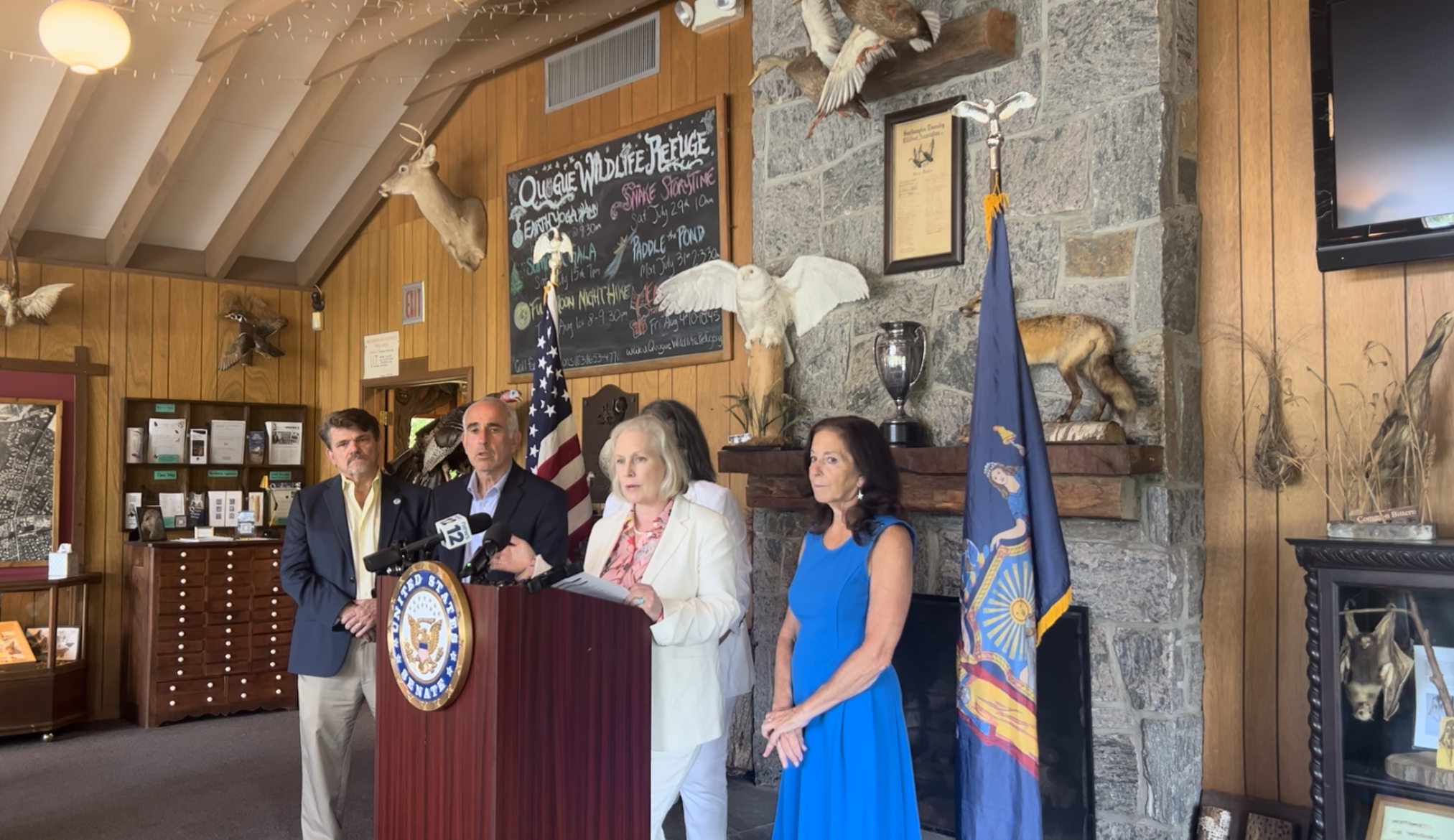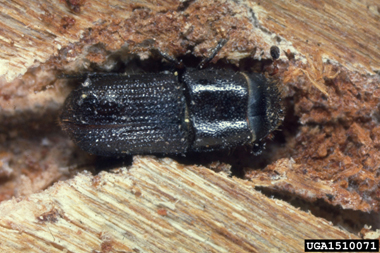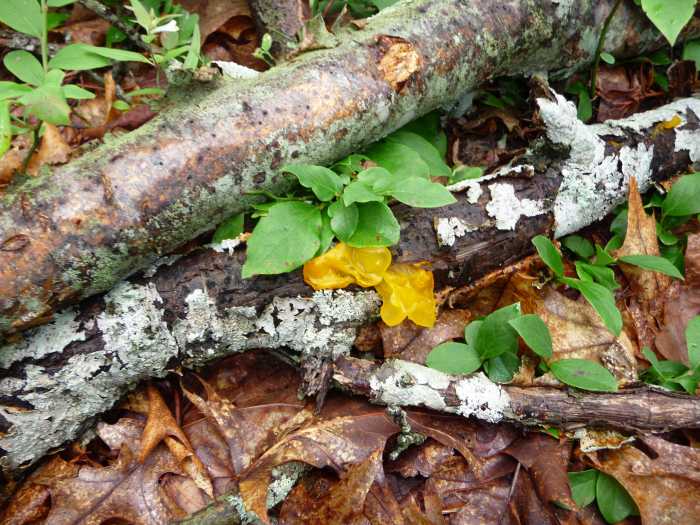Gillibrand Announces Bill to Address Chemical Contamination

U.S. Sen. Kirsten Gillibrand (D-NY) visited the Quogue Wildlife Refuge on Friday, July 28 to announce renewed legislation to address PFAS chemical contamination.
PFAS — per- and polyfluoroalkyl substances — are chemicals used in a variety of commercial products to resist heat, grease, water, stains and oil. PFAS can be found in cleaning products, nonstick cookware, water repellent clothing, stain resistant fabric, some cosmetic products and some firefighting foams.
“These chemicals can seep in our surface water and our ground water and continue to threaten the health of all Americans,” said Gillibrand.
Dubbed “forever chemicals” because of their longevity, PFAS can take hundreds or thousands of years to break down in the environment and can accumulate in the human body.
“So many of these chemicals are products to sell us convenience,” said Louise Harrison, New York natural areas coordinator at Save the Sound. “But these, for instance, non-stick chemicals stick with us. They’re in our bodies, in our soil, our air and drinking water.”
PFAS can leak from industrial or disposal sites and contaminate drinking water. There are traces of PFAS in at least 33 water districts across Long Island, according to a recent study.
Current research suggests that exposure to PFAS may lead to increased risk of some cancers, developmental effects in children, reproductive effects, a weakened immune system, increased cholesterol and more.
People can also be exposed to PFAS by eating fish caught in contaminated water, eating food grown or raised near contaminated areas or with packaging containing PFAS, swallowing contaminated soil or dust, or using certain commercial products.
“Toxic PFAS ‘forever chemicals’ are one of the greatest water quality threats of our generation,” said Citizens Campaign for the Environment Executive Director Adrienne Esposito, who called Gillibrand’s legislation a “common sense bill.”
“We need to prevent additional PFAS from being discharged into our waterways and our environment,” said Esposito. “Cleaning it up is very expensive. Preventing it is much more economical.”
Gillibrand was also joined by Southampton Town Supervisor Jay Schneiderman and Southampton Town Councilmember Tommy John Schiavoni.
“I studied chemistry in college … I didn’t know (that) in government, as town supervisor of Southampton, it would come in handy,” quipped Schneiderman as he introduced Gillibrand.
The bill, titled The Clean Water Standards for PFAS Act of 2023, would establish the first ever federal limits on PFAS. Under the Clean Water Act, the bill would require the Environmental Protection Agency (EPA) to develop quality water criteria for all classes of PFAS within three years, establish national regulatory standards for wastewater to address PFAS contamination by eight industries, establish a $200 million EPA grant program and authorize an additional $36 million for the EPA through 2026.
“PFAS … affects people everywhere — red places, blue places — it’s indiscriminate,” says Gillibrand, who plans to find a “strong Republican leader” to get the bill through Congress.
“Certainly it wasn’t going to pass under the Trump administration,” said Gillibrand. “(The administration) did not have any interest in clean water/ clean air priorities, so we had no ally there. We do have an ally in President Biden.” She plans to reintroduce the bill this September and hopes to pass it by the end of this Congress with bipartisan support.
“Ultimately, we need to turn off the tap and eliminate these harmful chemicals,” added Harrison. “For now, let’s pass this legislation, do the testing, write the guidelines, get the clean up underway … and then find ways to stop producing these chemicals altogether.”









